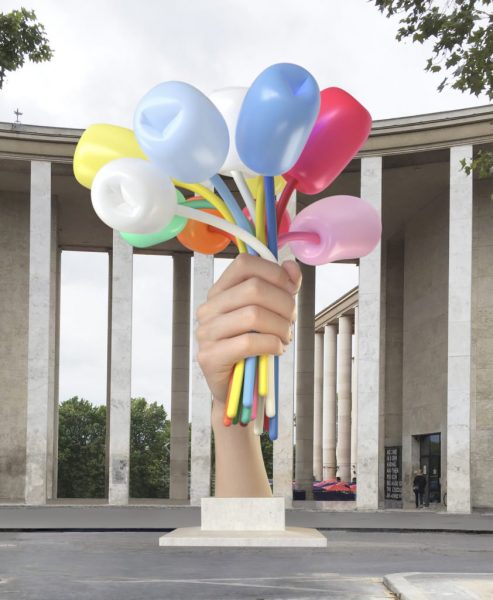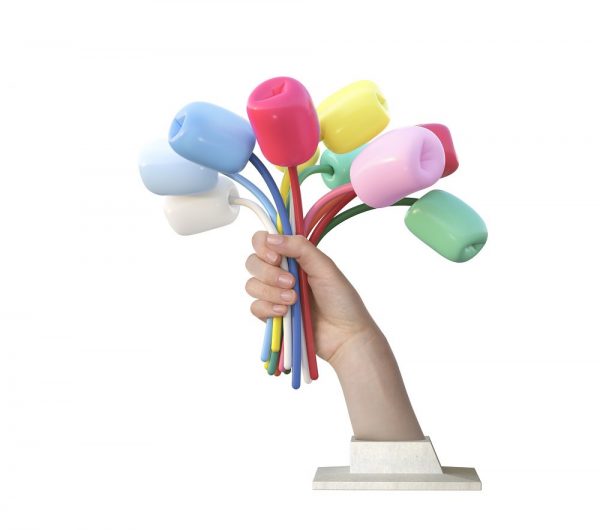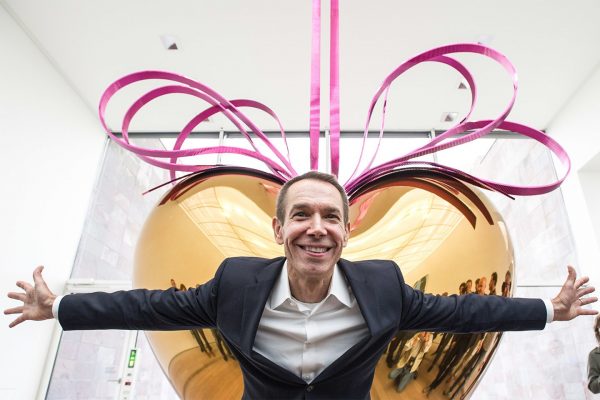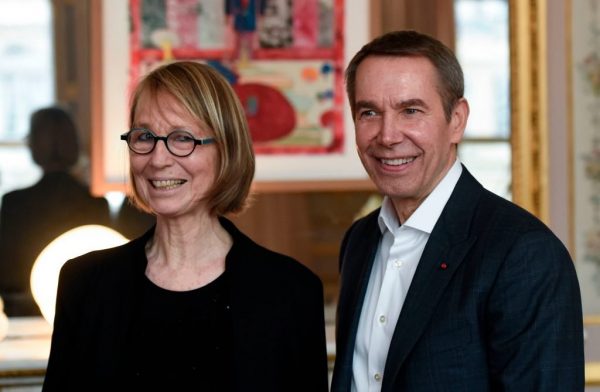Last week, art dealers are driving the latest wave of backlash against the hotly contested memorial. The Professional Committee of Art Galleries released a public statement demanding that the artist’s gift to France be installed in a different location.

The Professional Committee of Art Galleries is an ethics watchdog which supports more than 250 French galleries. In its public letter, it states: “This is not a matter of judging aesthetic qualities or the suitability of the sculpture as an homage to the victims of the attacks in France, but the location that was chosen.”

The dealers argue that the Koons memorial, currently intended for Tokyo Square in front of the Palais de Tokyo, should be placed at another, more appropriate site. Relocating the contentious artwork would be more fitting for a permanent tribute to terrorist attacks, they argue, while also leaving the high-profile plaza free for temporary public sculpture from the Parisian museums in the area.
Some believe the dealers’ response suggests a bit of sour grapes. The French newspaper Le Figaro described the motivations behind the letter as a mix of “sincere moral questioning,” jealousy among competitors, and anger that a non-French artist would receive such a prominent public project.
Koons’s former dealer, Emmanuelle de Noirmont, who is helping to organize the project, told Le Monde that the discussion did not have anything to do with the current polemic or the placement of the work. Last week, de Noirmont’s French art production company rushed to the artist’s defence amid the percolating opposition to the design.
The sculpture, Bouquet of Tulips, has been beset with controversy since it was first announced. A public petition asking France to say “non” to the gift has garnered nearly 8000 signatures.
To recap the saga, twenty-four artists, museum workers, collectors and politicians, including filmmaker Olivier Assayas, and the former Minister of Culture, Frédéric Mitterrand, have put their name to a letter last month deeming Koons’s gift symbolically inappropriate, undemocratic, and architecturally, patrimonially, artistically, financially, and technically “shocking.”

Bouquet of Tulips, a massive sculpture depicting a hand offering a bunch of multicolored balloon tulips, was gifted to the city on November 21, 2016, just over a year after the Paris terror attacks on November 13, 2015, and is currently being completed in a German factory. Meant as a symbol of optimism and solidarity after the terror attacks in 2015, the sculpture purposefully recalls the Statue of Liberty raising her torch, and is due to be permanently installed in Tokyo Square in front of the prestigious Palais de Tokyo.
The open letter called for the project to be abandoned, citing several reasons. First and foremost, the signatories wrote, the gift is unsuitable symbolically given its positioning far from the Stade de France, Bataclan concert venue, or nearby businesses hit by the 2015 attacks that took 130 lives. “The choice of work, and above all its placement somewhere without a single connection to the tragic events it evokes and their location, seems surprising at the least, if not opportunistic and even cynical.”

They wrote that the gift is democratically problematic. “If an artwork of such importance needed to be put in this particularly cultural and historically prestigious place, shouldn’t we have proceeded by launching a call for submissions, as is customary, to open this opportunity up to players in the French scene?” The sculpture is unseemly from both an architectural and patrimonial perspective because of its size and visual impact—the sculpture would be 38 feet high, and weigh in at 35 tons—as well as its location and the view of the Eiffel Tower. The signatories went on to condemn the sculpture—and its author—artistically, writing that “while he may have been brilliant and inventive in the 1980s, Koons has since become the emblem of an industrial, spectacular and speculative art.”

They explained that “[Koons’s] studio and dealers are hyper-luxury multinationals, and offering them such prominent visibility and recognition amounts to publicity or product placement, would be particularly out of place in this very touristy area between two major cultural institutions devoted to emerging artists and the French artistic scene.” Then, they argued that it is financially unjustifiable. Koons only gifted his idea; the €3.5 million ($4.3 million) execution and installation costs fall to the French State and taxpayers, as well as wealthy patrons. Further, the preliminary work required to reinforce the basement of the Palais de Tokyo underneath the square will put some of its spaces out of service for a long time, causing a major financial shortfall for the art center.
*extracted from artnet news. Photos courtesy of the internet

